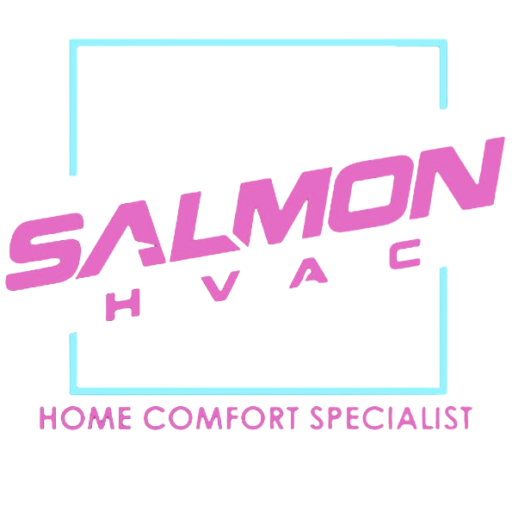If you have pets or suffer from allergies, the right air filter can transform your indoor air quality. Pet dander, dust mites, and seasonal pollen can circulate through your HVAC system, triggering sneezing, congestion, or asthma symptoms. Choosing a high-quality filter is one of the simplest and most effective ways to reduce airborne irritants and create a healthier home environment.
Why Indoor Air Quality Matters in Pet-Friendly Homes
Your home may feel like a safe haven, but it can harbor invisible allergens that impact your health. Pet dander tiny flakes of skin shed by cats, dogs, and other animals lingers in the air for hours and clings to furniture and clothing. Dust mites thrive in homes with pets, feeding on organic debris and releasing allergenic particles that can irritate sensitive respiratory systems.
Seasonal pollen is another culprit. In Utah, tree pollen in spring and weed pollen in late summer can easily enter your home through open windows or on your pets’ fur. Once inside, it adds to the allergen load in your living spaces. Without proper filtration, these particles remain in the air you breathe every day.
How Poor Air Quality Affects Health
For allergy sufferers, poor air quality means more than a stuffy nose it can lead to chronic respiratory discomfort. Inhaling allergens repeatedly can worsen asthma, cause headaches, and reduce overall energy levels. According to the American Lung Association, children and older adults are particularly vulnerable to the effects of poor indoor air quality, making proactive measures essential.
A high-performance air filter acts as your first line of defense. By trapping pet dander, dust, and pollen, it keeps these particles from recirculating, allowing you to breathe cleaner, healthier air.
Why HEPA Filters Are the Top Choice
High-Efficiency Particulate Air (HEPA) filters are considered the gold standard for allergy relief. These filters capture up to 99.97% of particles as small as 0.3 microns small enough to trap pet dander, fine dust, and many airborne allergens.
For Utah households with multiple pets, HEPA filters can noticeably reduce allergy flare-ups and improve air freshness. They work well in both stand-alone air purifiers and whole-home HVAC systems. Maintenance is straightforward: most HEPA filters require replacement every 6 to 12 months, depending on usage and household conditions.
Other Filtration Options to Consider
While HEPA filters excel at allergen control, other filter types can enhance indoor air quality:
- Activated carbon filters are excellent for neutralizing pet odors and household smells.
- Electrostatic filters use an electric charge to attract and trap airborne particles and can often be washed and reused.
- UV-C light systems can be installed in HVAC units to kill bacteria, mold spores, and other microorganisms that filters alone may miss.
A multi-stage filtration system combining HEPA, carbon, and UV technology offers the most comprehensive protection.
Choosing the Right Filter for Your HVAC System
When selecting a filter, consider the MERV (Minimum Efficiency Reporting Value) rating. For homes with pets, a MERV rating between 8 and 12 is typically ideal, striking a balance between capturing allergens and maintaining airflow. Higher ratings capture smaller particles but may restrict airflow in some systems, so always check your HVAC manufacturer’s guidelines.
Filter size and compatibility are equally important. An ill-fitting filter can allow unfiltered air to bypass the system. Check your HVAC unit’s specifications and choose a filter that fits securely.
Maintenance Is Key
Even the best air filter won’t perform well if it’s clogged. Homes with pets may require filter changes every one to three months, especially during shedding season or peak allergy months in Utah. Neglecting filter maintenance can lead to reduced efficiency, higher energy bills, and unnecessary wear on your HVAC system.
Beyond Filters: Additional Ways to Improve Indoor Air
Pairing good filtration with other air quality strategies yields the best results:
- Humidity control: Keep indoor humidity between 30% and 50% to discourage mold growth and dust mites.
- Ventilation: Open windows when outdoor air quality is good, or consider a heat recovery ventilator (HRV) for year-round fresh air without losing heating or cooling efficiency.
- Cleaning routines: Vacuum carpets and upholstery with a HEPA-filter vacuum, wash pet bedding weekly, and dust with a damp cloth to reduce airborne particles.
Why Work with a Professional HVAC Company
A professional HVAC technician can help you choose the best filter for your system, ensure proper installation, and set up a maintenance schedule tailored to your household’s needs. At Salmon HVAC, we work with Utah homeowners to provide custom solutions that address pet dander, seasonal allergies, and other indoor air quality concerns.
FAQ – Air Filtration for Pet Owners and Allergy Sufferers in Utah
Q: What’s the best air filter for a home with pets in Utah?
A HEPA filter is the most effective option for trapping pet dander and hair. Pairing it with an activated carbon filter can also help eliminate odors.
Q: How often should I change my HVAC filter if I have multiple pets?
In homes with two or more pets, changing your filter every 60 days or even monthly during peak shedding seasons will maintain better air quality.
Q: Will an air purifier help with Utah’s seasonal pollen?
Yes. An air purifier with a HEPA filter can trap pollen that enters your home, reducing allergy symptoms during spring and late summer.
Q: Can high-MERV filters damage my HVAC system?
If a filter is too restrictive for your system, it can reduce airflow and strain the unit. Always check your HVAC manufacturer’s recommendations before upgrading to a higher MERV filter.
Q: Do I need a professional to install a UV light system in my HVAC unit?
Yes. Proper installation ensures the UV system effectively neutralizes airborne microbes without damaging HVAC components.
Cleaner air starts with the right filter and regular maintenance. Whether you’re dealing with pet dander, seasonal pollen, or household odors, the right filtration system can make your Utah home healthier and more comfortable. Contact Salmon HVAC today to discuss the best air quality solutions for your home.

